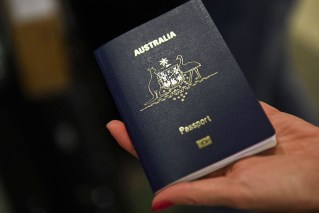Are discount airfare sites worth the risk? Here’s what you need to know


Cheap airfares are tempting, but it pays to know what you're getting into. Photo: TND
When booking flights to Japan recently, I diligently worked my way through an array of travel sites such as Skyscanner and Kayak to find the cheapest fare.
One of these aggregator search engines led me to a website that had something of a “unicorn airfare”.
Direct return flights with a reputable airline at a fraction of the cost I had seen elsewhere. It was hundreds of dollars cheaper than booking the same flight directly on the airline’s website.
Which immediately leads you to ask: Is it too good to be true?
I googled this particular booking site and was met with a flood of one-star reviews with frantic warnings in caps-lock like “AVOID AT ALL COSTS” and “NOT WORTH THE TROUBLE!!!!!!!!!”
But because I like to live on the edge and the bargain price was too good to ignore, I didn’t allow these semi-hysterical reviews to completely put me off.
I decided to dig a little deeper to weigh up the pros and cons of booking on these sites.
How do they do it?
Websites such as BudgetAir and CheapTickets are “consolidators” – essentially a wholesaler of airline tickets.
They buy big blocks of tickets at a discounted price, which they then resell.
This “volume pricing” is how they can offer a lower price than the airlines.
What’s the catch?
Let’s not kid ourselves. There are a few:
- Restrictions
As with airline sale fares, these lower prices often carry more restrictions than booking directly through a travel agent or airline.
You may not earn frequent flyer points and perks that are usually part of the airfare (such as seat selection, meal selection and check-in luggage) may not be included.
- Potential issues with customer service
Many of the negative reviews about these booking sites bemoan the customer service.
If there’s an issue with your booking or you need to make changes, it can be more difficult than dealing directly with an airline.
Airfare consolidators tend to have limited staff and people complain about not being able to get through to a customer service representative at all (which is no fun when you’re stuck on the other side of the world).
On top of that you’ll often be navigating two sets of terms and conditions – from the airline and the booking site – and they may not necessarily match up. There are reports of the airline palming customers off to the booking site and vice versa.
Communication from the booking site can also be lacking.
If your flight gets delayed or cancelled, they may not take responsibility for notifying you.
- The fine print (and extra costs)
As tedious as it is, make sure you read the fine print on these booking sites.
Find out what happens if you miss your plane or your flight is cancelled and what the cost is to alter your itinerary (this is a big one – you’ll not only be charged the airline’s fees for reticketing/making changes to an itinerary but the booking site will have extra fees on top of this that can be significant).
Also be sure you understand the process of how the ticket is issued once you’ve paid.
- Beware of scam sites
There are some dodgy sites that look legitimate but will take your cash without actually issuing a ticket.
You can check out the company’s reputation on a site such as Trust Pilot.
The bottom line
It can be a gamble booking through these sites.
If you don’t have to make any alterations to your booking, you may remain smug about the rock-bottom price you landed.
If fate is not on your side and you end up having to reschedule a flight, you could rue the day you went for a cheap option.
But by taking the points above into consideration you can take more of a measured risk.
Hot tip? Give price matching a go
If you’ve found the cheapest price around but you’re feeling a bit dodgy about the booking website, take your quote directly to the airline and ask whether they will match or beat it.
Airlines such as Jetstar, Qantas and Virgin Australia have policies around price matching.








